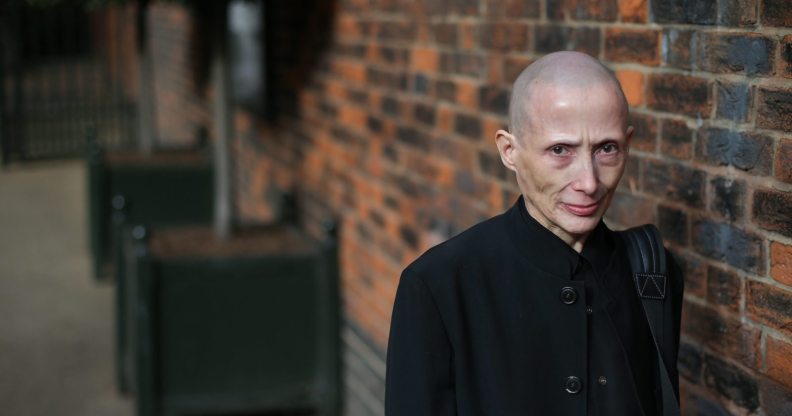UK awaits verdict on High Court battle for non-gendered passports

Elan-Cane first applied for a non-gendered passport in 1995. (DANIEL LEAL-OLIVAS/AFP/Getty)
The battle for non-gendered passports to be provided in the UK might soon be drawing to a close.
In a landmark High Court case last week, lawyers argued that the UK’s refusal to provide non-gendered passports for citizens is “unlawful.”
Representing non-gendered person Christie Elan-Cane, Kate Gallafent QC said that the right not to be discriminated against based on gender or sex is enshrined in European law.
“For the claimant, obtaining and using a passport currently involves making a false declaration as to the nature of the claimant’s gender identity, which causes the claimant considerable distress,” said the QC during the hearing on Thursday.
“The lack of a non-gender specific passport option impacts on the claimant’s ability to obtain and use a passport on equal terms with persons who identify, and are identified, solely in terms of male or female.”

Campaigner Christie Elan-Cane, who does not identify as either male or female, poses in South Kensington, central London on October 11, 2017. (DANIEL LEAL-OLIVAS/AFP/Getty)
Christie Elan-Cane, who has fought for two decades to receive a non-gendered passport, could have another two month wait before they receive the High Court’s verdict.
After first applying for a non-gendered passport in 1995, Elan-Cane has battled for 20 years to obtain a non-gendered passport, which is marked with an ‘x’ in the gender category.
“My campaign calls for the legal and social recognition of my non-gendered identity,” Elan-Cane wrote in a LiveJournal post.
“Demanding equality and social legitimacy for all human beings who do not and cannot define within a gendered perimeter of male or female.”

(Matt Cardy/Getty)
Several countries including Canada, Ireland, India, New, Zealand, Pakistan and Germany already issue non-gendered passports.
“I’m quite apprehensive because it could go either way, and the future direction of what I’m doing and the lives of a lot of people will be dependent on this,” Elan-Cane said to the Thomson Reuters Foundation.
Around 600,000 people identify as non-gendered, said a recent survey by the Equality and Human Rights Commission.

